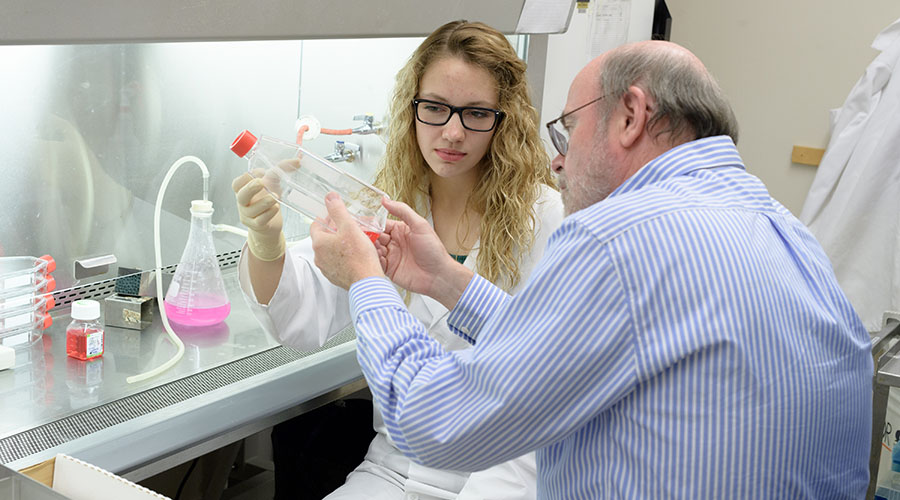What does graduate school entail?

A typical master’s degree in the life sciences takes 2-3 years, and a doctorate takes 4-6 years. Students with a bachelor’s degree can go directly to a doctoral program or get a master’s degree followed by a doctorate if they wish to continue. Graduate students spend most of their time conducting research, writing it up in a thesis, and publishing it in a journal(s) (unless the program is non-thesis). They also take graduate courses, though coursework is a much smaller part of graduate school compared to undergraduate education.
Graduate education differs from undergraduate education in that students generally get support to pay for their education through research assistantships (RAs), teaching assistantships (TAs), or fellowships. RA support differs depending on the program and advisor. In some cases it may mean students are simply doing their own research and being paid for it, but in others it may mean working for their advisor or another lab. Teaching assistantships are generally given to graduate students for teaching laboratory sections to undergraduates. In many cases, students obtain combined RA and TA support to pay for their tuition and all or most of their living expenses. Fellowships are grants that are given to students and they generally fund individuals’ education and living expenses at the school of their choice. Before accepting any offer for graduate school, students should know what kind of financial support is being offered. This includes determining if finding is available for 9 months or 12 months because summer support is sometimes problematic.
During the graduate school process students work with their advisor to agree on a project and protocols that address scientific question(s) of interest to the student. A master’s degree student will do a smaller project and may be given their project idea, while doctorate students generally develop their projects independently. Doctoral research takes significantly longer, is more comprehensive, and tends to consist of multiple related research projects. Because the process for either degree requires working closely with the graduate advisor and program, completing a degree can be a very long and unpleasant experience if students are not working with the right advisor and program for their interests, so choose your advisor wisely.